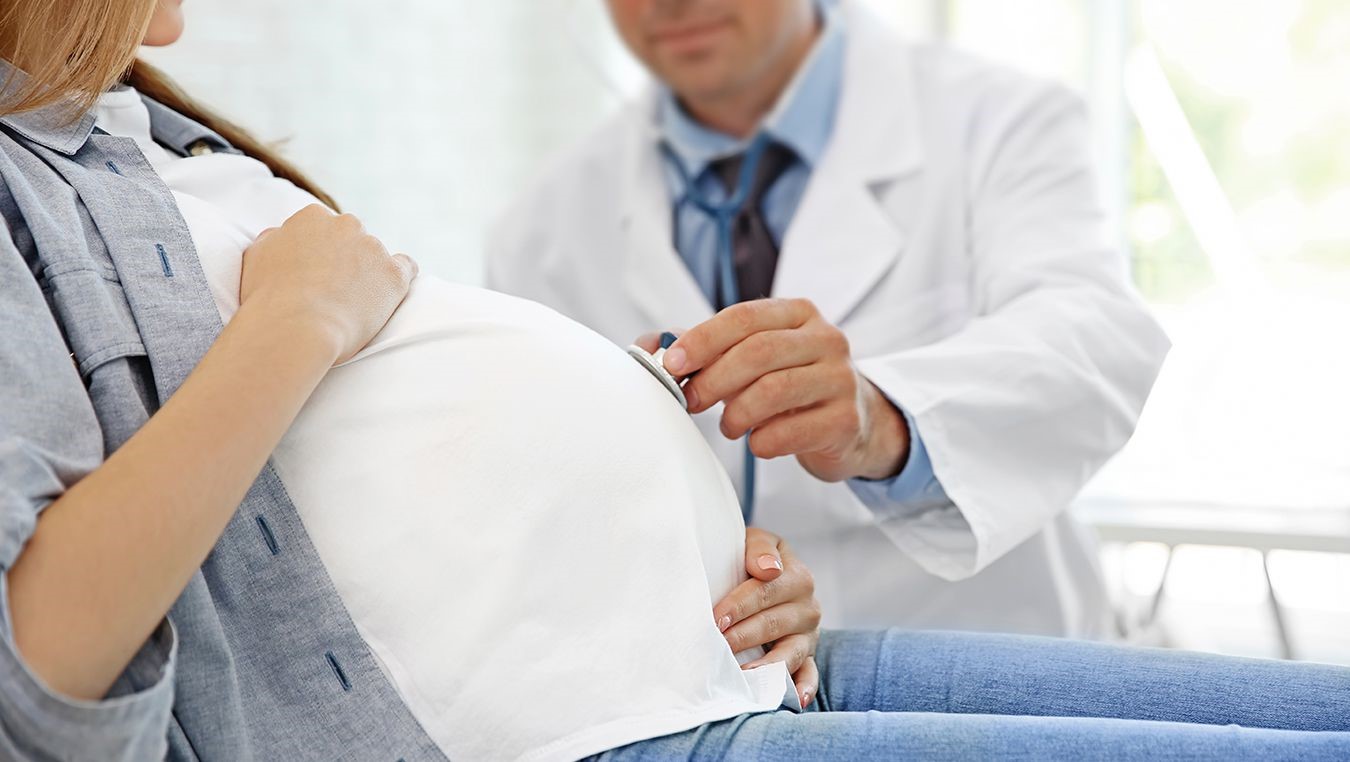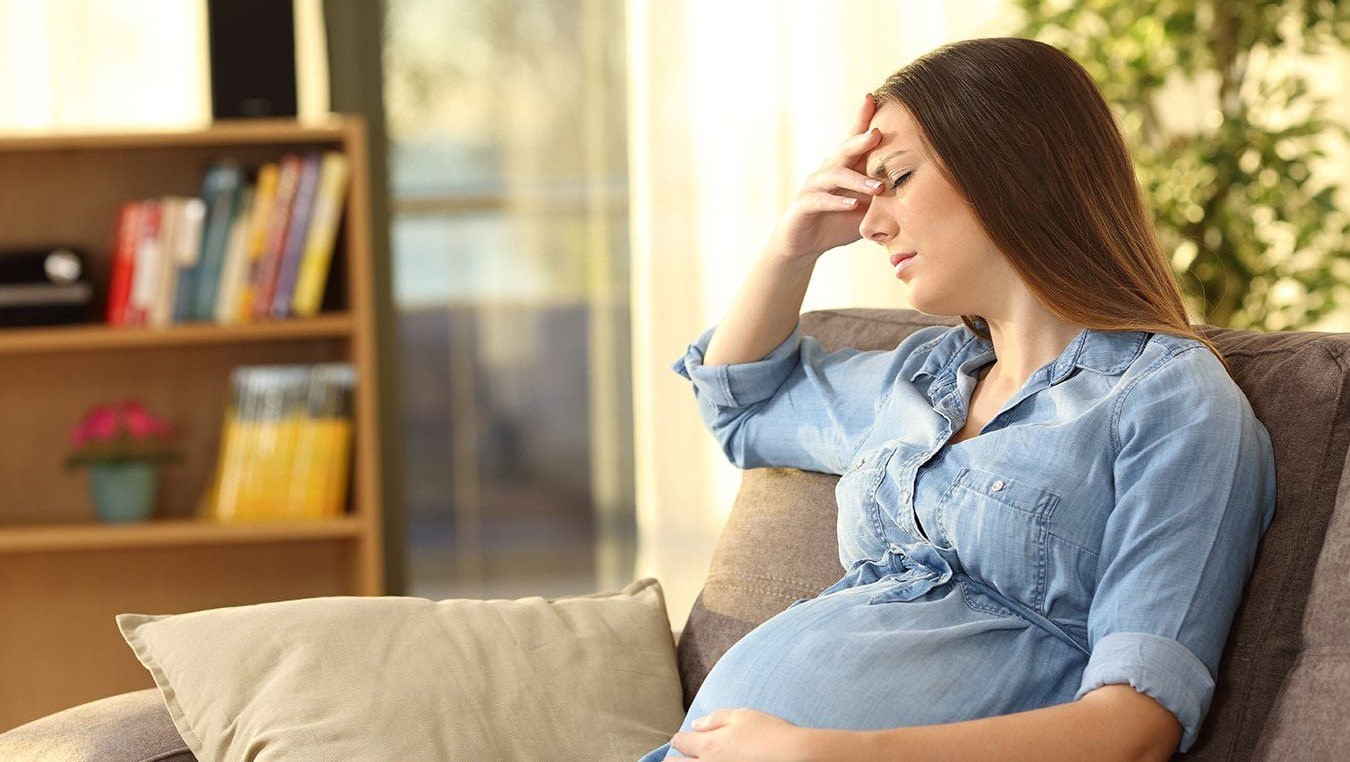How to deal with malaise during pregnancy

Pregnancy is a difficult time for a woman's body – hormonal and physical changes have a significant impact, causing greater or lesser levels of discomfort. The period of waiting for your little one is full of joy and euphoria, but is also often overshadowed by not feeling great. How can you deal with this? How can you deal with weakness, lack of energy, bad mood and sleepiness? In consultation with specialists from the Gynaecology and Obstetrics Clinical Hospital of the Poznań University of Medical Sciences, we'll tell you how to get through this time. Famous mums have also shared their pregnancy problems – you can listen to their stories in the series on Facebook ‘Talks with experts: parenting made easier’.
Malaise during pregnancy – what should you look out for?
Every pregnancy is different – some women feel great up to eight months, and are simply radiant. They can exercise, don't gain much weight, and don't suffer from the issues that commonly arise in the first trimester. However, many have problems, such as nausea, weakness, back pain and swelling of the legs.
Remember that every problem should be consulted with the doctor looking after you during your pregnancy – never take any medications, supplements or even herbs without first asking your doctor! In this difficult period, you're responsible not only for yourself, but also for your baby! Also when the pregnancy is at risk, it is absolutely necessary to follow medical advice and do not use anything on your own!

Pregnancy problems
The most-common pregnancy problems, particularly in the first trimester, are:
- tiredness and sleepiness,
- sleeplessness,
- heartburn,
- swelling, particularly of the lower limbs,
- trouble concentrating,
- vomiting,
- excessive or non-existent appetite,
- back pain (this usually appears towards the end of the pregnancy),
- cramps.
Reasons for malaise during pregnancy
Tiredness, lack of energy and general sleepiness are usually caused by hormonal changes that occur in the woman's body. High progesterone makes women feel weak and unmotivated, and a drop in blood pressure can also make them feel sleepy.
Another reason can be the mother's age – even if she's been pregnant before, this pregnancy may be a completely different experience. The older you are, the more your body, hormones and endurance change – that's why one pregnancy can be a breeze, while another may be completely different, like actress Aleksandra Szwed tells in the second episode of Important Conversations about Parenthood.

"In my first pregnancy, everything was wonderful – I was relaxed and always smiling. Nothing annoyed me," says Aleksandra Szwed. "But in this one? It's a completely different experience. It's not that I'm suffering terribly, but I feel completely different than with the first pregnancy."
Małgorzata Socha has a similar recollection.
"I fondly remember my first pregnancy," says Małgorzata Socha. "Of course, I had time for myself. In this regard, the first one was amazing. The second and third time around, this wasn't possible, because the kids were the most important. It's difficult to explain to youngsters why they should play on their own while you have a nap. Or that today you're not cooking anything because you can't be bothered, because your legs hurt. The next pregnancies were simply different, and so I reacted to them differently."
And to top it all off, there was the weakness from the vomiting. How can you deal with this? How can you get through this time to enjoy being pregnant and have fond memories of this period?
How to deal with malaise during pregnancy
First of all – remember that it'll pass. Most afflictions disappear in the second trimester, which is called the golden period of pregnancy. But remember that if you are vomiting frequently and are unable to eat or drink, you need to see your doctor. They can prescribe medications to stop the vomiting. Also visit your doctor if you have heartburn to be sure that you're allowed to take over-the-counter medications. It is a harmful myth that "pregnancy must hurt" or "pregnancy does not make one ill". Don't pay any attention to people who talk about their experiences and play down how you're feeling – if you feel unwell, go to the doctor and take advantage of amenities such as priority in queues and free toilets. Don't be afraid to call your gynaecologist if you have any concerns – their role is to help, soothe and treat you. You're not alone in this!

If you're working and not taking the first trimester very well (to the stage that you're unable to work), ask for a medical certificate. You need to take care of yourself! If you can, sleep a lot. Remember to hydrate regularly, especially if you're vomiting. Drink water, preferably not sparkling. To make regular drinking easier, add fruit, such as lemon, raspberries and mint. Also look after your diet – eat easily digestible things, especially vegetables and fruit. They provide a lot of fibre and vitamins, which are beneficial. This doesn't mean that you need to give up pizza and hamburgers, but remember that there is a risk of gestational diabetes, so you should watch your weight and eat healthy food (not only during pregnancy).
A healthy diet will help you not only with problems with constipation and diarrhoea, but also with a sensitive stomach and your overall well-being. Try to have a healthy relationship with food, and never "eat for two". Contrary to popular belief, the caloric demand doesn't increase that much (in the first trimester, it doesn't change at all), and the greater your body weight, the more difficult things will be later – your joints, back or the whole body may hurt.
If your body is demanding it, have frequent naps. Your body regenerates best when you sleep, so naps are fantastic. However, try not to dysregulate your biological clock – instead of having a nap at 7 pm, try to go to bed earlier to be able to sleep the entire night. Try meditation, yoga or a bath with scented candles.
Light physical activity, such as walks, can be beneficial for your psyche. Plus, you'll oxygenate the body, and when you're walking on a sunny day, you'll provide an additional dose of vitamin D. And if there are no contraindications, don't give up exercise (but always consult this with your gynaecologist). You can read more about exercise during pregnancy as advised by Midwife Pip HERE.

If your malaise is mostly in relation to your mood, focus on relaxation. Go out with your friends, try some yoga, rest a lot and do what you enjoy. Reading, walks, watching series – whatever you like.
Don't be afraid to call your doctor if medical maladies appear – your gynaecologist will know if you can take heartburn tablets, if you don't have enough vitamin D (which also results in mood swings), or if you perhaps need to increase your supplements.
Does the way you feel during pregnancy impact your child?
This is a question often asked by future mums. There's a widespread and damaging myth that girls "steal your beauty" and that women feel worse at this time. This is neither accurate nor medically proven – firstly, remember that how you feel during pregnancy depends on many aspects – a lack of sleep, general tiredness, stress, and even what you eat. The weather and which pregnancy it is can also be contributing factors.
So there's no way to predict the sex of the baby based solely on how a woman feels during the pregnancy. An ultrasound will always be the most accurate – this is usually carried out at approximately 20 weeks.
